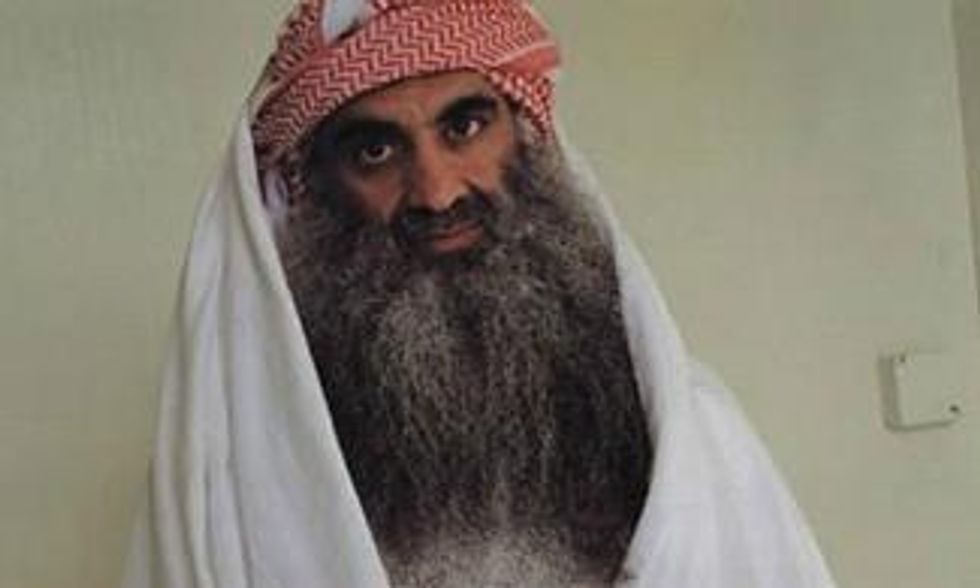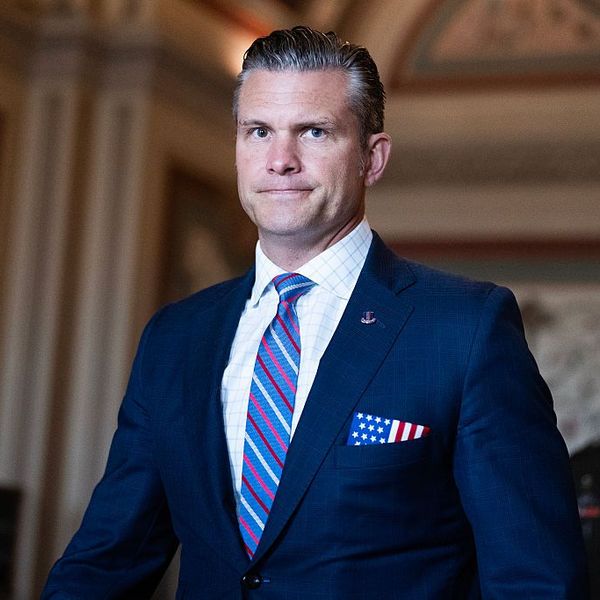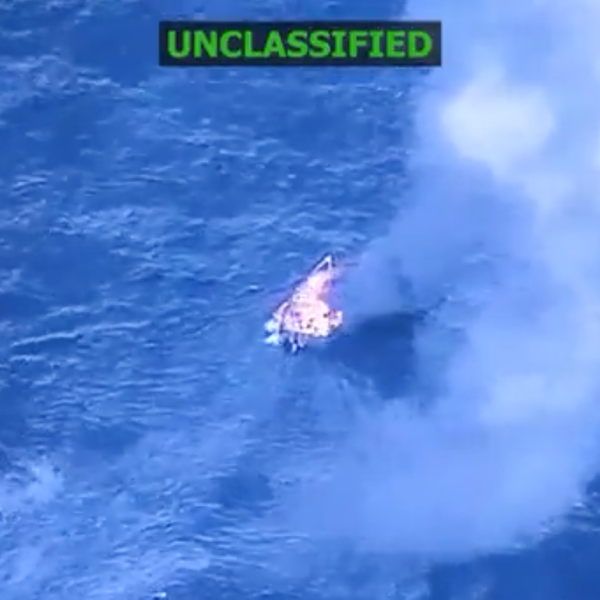A Military Trial for Alleged 9/11 Terrorists is Unlikely to Lead to Justice
Bureaucratic and legal bungles – and torture – have undermined any prospect of a fair trial for the five key Guantánamo detainees
After almost 10 years of incarceration, US officials have announced that five of the most important prisoners left in Guantanamo Bay are finally to go on trial in a capital military tribunal where, if found guilty, they are likely to be executed.

By far the most important prisoner is Khalid Sheikh Mohammed - known as KSM - who together with his co-accused Ramzi bin al-Shibh, is widely recognised as the mastermind behind the planning of the 9/11 attacks on America. The others are KSM's nephew Ali Abdul Aziz Ali, Walid bin Attash and Mustafa Ahmed al-Hawsawi. All five men were arrested in Pakistan in 2002 and 2003.
The military tribunal is the latest development in an extraordinarily convoluted and distorted legal saga that has already damaged the prospects of a fair trial for any of the accused. All of these men have been held in secret CIA "black sites" around the world, for months or years on end. KSM, who was captured in March 2003 at the home of a Pakistani military officer in the heart of a military camp in Rawalpindi, was waterboarded 183 times during the almost three-and-a-half years he spent in this maze of secret prisons. Waterboarding is an extreme form of torture which, although it leaves no physical marks, makes the victim believe he is about to drown. Only in September 2006 did KSM arrive at Guantanamo Bay.
Not surprisingly, he revealed a wealth of information about the way in which the 9/11 attacks were organized, as well as his role in numerous other attacks and plots. In fact, as he first told the Red Cross in October 2006, he provided the information that his interrogators wanted to hear in order to stop the torture.
At his first combatant status review tribunal in 2007 he admitted to an extraordinary catalog of terrorist attacks, many of which he was responsible for, others merely vague ideas. Those admissions included responsibility for the 9/11 operation "from A to Z", the 1993 World Trade Center bombing, the decapitation of journalist Daniel Pearl, recruiting shoe bomber Richard Reid, the Bali nightclub bombing, a plot to bomb and destroy the Panama Canal, plans to assassinate former US president Jimmy Carter, Pope John Paul II, Bill Clinton and Pervez Musharraf of Pakistan, plots to blow up the Brooklyn Bridge, the Sears Tower in Chicago, Heathrow airport, Big Ben, the New York Stock Exchange, various nuclear power plants, Nato headquarters in Brussels and numerous other targets, both real and imagined. It was one of the most comprehensive confessions of all time.
In February 2008 the US Department of Defense announced that charges had been sworn against six detainees at Guantanamo - the same group who were charged a few days ago, plus an Arab who had been sent to join the 9/11 hijackers, but who had been refused entry to the US. The military trial actually began in June 2008, witnessed by 35 journalists in an adjoining room who heard KSM decline legal representation for what was looking increasingly like a show trial.
The proceedings dragged on until December 2008 when, in an unexpected move, all the accused told the military judge they wished to plead guilty. Three months later they issued a response to the nine-main charges against them, dismissing most of the allegations and attempting to justify their actions. They all signed the document as the "9/11 Shura Council". Soon after, the military trial was abandoned.
As these chaotic bureaucratic and legal bungles further undermined any prospect of a fair trial, KSM took the opportunity to refresh his image. He now sought to portray himself as a martyr to justice. Despite his incarceration in Guantanamo, two new photos of him have appeared, released to his family by the Red Cross. Instead of the image of the scruffy-looking man in white pajamas taken when he was being arrested, the new images show a smiling man with a great bushy beard, looking more like a guru than a mass murderer. KSM, it seemed, was flourishing.
The next event was yet another disaster for American justice. In November 2009, following pressure from the new Obama administration, it was announced that all five men would be transferred to a prison in New York to be tried in a civilian court. At last it looked as if justice would prevail. But it was not to be. Despite the efforts of the new president, a majority of members of the US Congress were determined that none of the Guantanamo prisoners should have a civil trial on American soil. In January 2011, in a humiliating act, President Obama was forced to sign the National Defense Authorization Act (NDAA), prohibiting the use of government funds to transfer detainees from Guantanamo to the US mainland.
In April last year, a clearly angry US attorney general, Eric Holder , finally announced that once again, the men were to be tried by a military commission at Guantanamo. Now that trial is about to start. After claims of torture, rendition, confession, aborted military commission and civilian trial, can anyone expect that justice will be served?
An Urgent Message From Our Co-Founder
Dear Common Dreams reader, The U.S. is on a fast track to authoritarianism like nothing I've ever seen. Meanwhile, corporate news outlets are utterly capitulating to Trump, twisting their coverage to avoid drawing his ire while lining up to stuff cash in his pockets. That's why I believe that Common Dreams is doing the best and most consequential reporting that we've ever done. Our small but mighty team is a progressive reporting powerhouse, covering the news every day that the corporate media never will. Our mission has always been simple: To inform. To inspire. And to ignite change for the common good. Now here's the key piece that I want all our readers to understand: None of this would be possible without your financial support. That's not just some fundraising cliche. It's the absolute and literal truth. We don't accept corporate advertising and never will. We don't have a paywall because we don't think people should be blocked from critical news based on their ability to pay. Everything we do is funded by the donations of readers like you. Will you donate now to help power the nonprofit, independent reporting of Common Dreams? Thank you for being a vital member of our community. Together, we can keep independent journalism alive when it’s needed most. - Craig Brown, Co-founder |
After almost 10 years of incarceration, US officials have announced that five of the most important prisoners left in Guantanamo Bay are finally to go on trial in a capital military tribunal where, if found guilty, they are likely to be executed.

By far the most important prisoner is Khalid Sheikh Mohammed - known as KSM - who together with his co-accused Ramzi bin al-Shibh, is widely recognised as the mastermind behind the planning of the 9/11 attacks on America. The others are KSM's nephew Ali Abdul Aziz Ali, Walid bin Attash and Mustafa Ahmed al-Hawsawi. All five men were arrested in Pakistan in 2002 and 2003.
The military tribunal is the latest development in an extraordinarily convoluted and distorted legal saga that has already damaged the prospects of a fair trial for any of the accused. All of these men have been held in secret CIA "black sites" around the world, for months or years on end. KSM, who was captured in March 2003 at the home of a Pakistani military officer in the heart of a military camp in Rawalpindi, was waterboarded 183 times during the almost three-and-a-half years he spent in this maze of secret prisons. Waterboarding is an extreme form of torture which, although it leaves no physical marks, makes the victim believe he is about to drown. Only in September 2006 did KSM arrive at Guantanamo Bay.
Not surprisingly, he revealed a wealth of information about the way in which the 9/11 attacks were organized, as well as his role in numerous other attacks and plots. In fact, as he first told the Red Cross in October 2006, he provided the information that his interrogators wanted to hear in order to stop the torture.
At his first combatant status review tribunal in 2007 he admitted to an extraordinary catalog of terrorist attacks, many of which he was responsible for, others merely vague ideas. Those admissions included responsibility for the 9/11 operation "from A to Z", the 1993 World Trade Center bombing, the decapitation of journalist Daniel Pearl, recruiting shoe bomber Richard Reid, the Bali nightclub bombing, a plot to bomb and destroy the Panama Canal, plans to assassinate former US president Jimmy Carter, Pope John Paul II, Bill Clinton and Pervez Musharraf of Pakistan, plots to blow up the Brooklyn Bridge, the Sears Tower in Chicago, Heathrow airport, Big Ben, the New York Stock Exchange, various nuclear power plants, Nato headquarters in Brussels and numerous other targets, both real and imagined. It was one of the most comprehensive confessions of all time.
In February 2008 the US Department of Defense announced that charges had been sworn against six detainees at Guantanamo - the same group who were charged a few days ago, plus an Arab who had been sent to join the 9/11 hijackers, but who had been refused entry to the US. The military trial actually began in June 2008, witnessed by 35 journalists in an adjoining room who heard KSM decline legal representation for what was looking increasingly like a show trial.
The proceedings dragged on until December 2008 when, in an unexpected move, all the accused told the military judge they wished to plead guilty. Three months later they issued a response to the nine-main charges against them, dismissing most of the allegations and attempting to justify their actions. They all signed the document as the "9/11 Shura Council". Soon after, the military trial was abandoned.
As these chaotic bureaucratic and legal bungles further undermined any prospect of a fair trial, KSM took the opportunity to refresh his image. He now sought to portray himself as a martyr to justice. Despite his incarceration in Guantanamo, two new photos of him have appeared, released to his family by the Red Cross. Instead of the image of the scruffy-looking man in white pajamas taken when he was being arrested, the new images show a smiling man with a great bushy beard, looking more like a guru than a mass murderer. KSM, it seemed, was flourishing.
The next event was yet another disaster for American justice. In November 2009, following pressure from the new Obama administration, it was announced that all five men would be transferred to a prison in New York to be tried in a civilian court. At last it looked as if justice would prevail. But it was not to be. Despite the efforts of the new president, a majority of members of the US Congress were determined that none of the Guantanamo prisoners should have a civil trial on American soil. In January 2011, in a humiliating act, President Obama was forced to sign the National Defense Authorization Act (NDAA), prohibiting the use of government funds to transfer detainees from Guantanamo to the US mainland.
In April last year, a clearly angry US attorney general, Eric Holder , finally announced that once again, the men were to be tried by a military commission at Guantanamo. Now that trial is about to start. After claims of torture, rendition, confession, aborted military commission and civilian trial, can anyone expect that justice will be served?
After almost 10 years of incarceration, US officials have announced that five of the most important prisoners left in Guantanamo Bay are finally to go on trial in a capital military tribunal where, if found guilty, they are likely to be executed.

By far the most important prisoner is Khalid Sheikh Mohammed - known as KSM - who together with his co-accused Ramzi bin al-Shibh, is widely recognised as the mastermind behind the planning of the 9/11 attacks on America. The others are KSM's nephew Ali Abdul Aziz Ali, Walid bin Attash and Mustafa Ahmed al-Hawsawi. All five men were arrested in Pakistan in 2002 and 2003.
The military tribunal is the latest development in an extraordinarily convoluted and distorted legal saga that has already damaged the prospects of a fair trial for any of the accused. All of these men have been held in secret CIA "black sites" around the world, for months or years on end. KSM, who was captured in March 2003 at the home of a Pakistani military officer in the heart of a military camp in Rawalpindi, was waterboarded 183 times during the almost three-and-a-half years he spent in this maze of secret prisons. Waterboarding is an extreme form of torture which, although it leaves no physical marks, makes the victim believe he is about to drown. Only in September 2006 did KSM arrive at Guantanamo Bay.
Not surprisingly, he revealed a wealth of information about the way in which the 9/11 attacks were organized, as well as his role in numerous other attacks and plots. In fact, as he first told the Red Cross in October 2006, he provided the information that his interrogators wanted to hear in order to stop the torture.
At his first combatant status review tribunal in 2007 he admitted to an extraordinary catalog of terrorist attacks, many of which he was responsible for, others merely vague ideas. Those admissions included responsibility for the 9/11 operation "from A to Z", the 1993 World Trade Center bombing, the decapitation of journalist Daniel Pearl, recruiting shoe bomber Richard Reid, the Bali nightclub bombing, a plot to bomb and destroy the Panama Canal, plans to assassinate former US president Jimmy Carter, Pope John Paul II, Bill Clinton and Pervez Musharraf of Pakistan, plots to blow up the Brooklyn Bridge, the Sears Tower in Chicago, Heathrow airport, Big Ben, the New York Stock Exchange, various nuclear power plants, Nato headquarters in Brussels and numerous other targets, both real and imagined. It was one of the most comprehensive confessions of all time.
In February 2008 the US Department of Defense announced that charges had been sworn against six detainees at Guantanamo - the same group who were charged a few days ago, plus an Arab who had been sent to join the 9/11 hijackers, but who had been refused entry to the US. The military trial actually began in June 2008, witnessed by 35 journalists in an adjoining room who heard KSM decline legal representation for what was looking increasingly like a show trial.
The proceedings dragged on until December 2008 when, in an unexpected move, all the accused told the military judge they wished to plead guilty. Three months later they issued a response to the nine-main charges against them, dismissing most of the allegations and attempting to justify their actions. They all signed the document as the "9/11 Shura Council". Soon after, the military trial was abandoned.
As these chaotic bureaucratic and legal bungles further undermined any prospect of a fair trial, KSM took the opportunity to refresh his image. He now sought to portray himself as a martyr to justice. Despite his incarceration in Guantanamo, two new photos of him have appeared, released to his family by the Red Cross. Instead of the image of the scruffy-looking man in white pajamas taken when he was being arrested, the new images show a smiling man with a great bushy beard, looking more like a guru than a mass murderer. KSM, it seemed, was flourishing.
The next event was yet another disaster for American justice. In November 2009, following pressure from the new Obama administration, it was announced that all five men would be transferred to a prison in New York to be tried in a civilian court. At last it looked as if justice would prevail. But it was not to be. Despite the efforts of the new president, a majority of members of the US Congress were determined that none of the Guantanamo prisoners should have a civil trial on American soil. In January 2011, in a humiliating act, President Obama was forced to sign the National Defense Authorization Act (NDAA), prohibiting the use of government funds to transfer detainees from Guantanamo to the US mainland.
In April last year, a clearly angry US attorney general, Eric Holder , finally announced that once again, the men were to be tried by a military commission at Guantanamo. Now that trial is about to start. After claims of torture, rendition, confession, aborted military commission and civilian trial, can anyone expect that justice will be served?

